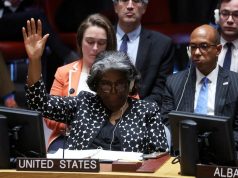The rise, emergence, and success of populist movements are some of the defining characteristics of contemporary global politics. Despite being antagonistic to the liberal democratic view, populists across the world have gained astonishing electoral success. Populism has remained a contested term due to the lack of consensus over its precise meaning, but there is some agreement in the literature that the success of populist mobilisation is mainly associated with the widespread abandonment of established parties and political movements that link voters to the government. It triggers perceptions about the existing order as corrupt and seeks the support of virtuous “people” for the reconstruction of a truly just society. The rhetoric of “pro-people” or “anti-establishment” is generally the product of institutional decay and electoral incentives where unmediated links between the leadership and voters are more important than any other factors. Although populism exists across the ideological spectrum, populist threats to liberal democracy have largely come from the right wing. Right-wing populism tends to be far more exclusive, drawing support from voters who hold a hyper-nationalist and anti-minority attitude.
Populism is a grave threat to democracy. Yet across the globe, right-wing populists with authoritarian tendencies are being chosen with an extraordinary degree of participation. This paradoxical moment in liberal democracy shows that the path of democracy is not always linear, and at certain points in their lives, democracies span, endorse, and sanctify some of the most dangerous and debased political tendencies. The current very virulent phase of democracy, in alliance with an even more virulent phase of nationalism, seems to be siding with the unity of the majority and ganging up against diversity, thereby seriously threatening the precarious balance of democracy. Populism amplified this complex development by looking for a culprit.
According to Political Scientist Anton Pelinka ‘ as the enemy- the foreigner, the foreign culture- has already succeeded in breaking into the fortress of nation state, some one must be responsible. The elites are the secondary “definitors defining others,” responsible for the liberal democratic policies of accepting cultural diversity. The populist answer to the complexities of a more and more pluralistic society is not multiculturalism. Right -wing Populism sees multiculturalism as a recipe to denationalise one’s own nation and deconstruct one’s own people. Thus, the discursive strategies of “victim-perpetrator reversal,” “scapegoating,” and the construction of conspiracy theories are the necessary toolkit of right-wing populist rhetoric and can gradually produce the seedbed for fascism.
In countries like India and the USA, an elected right-wing leader mobilises the discontent that is uneasy with the societies being more ethnically, religiously, and racially diverse. In this cauldron of disenchantment, they adopted a populist stance by means of associating religious and cultural symbols and perpetuating the narrative of “one nation, one people, and one culture,” which ultimately advances their electoral fortunes. Encouraged by populists, a large segment of the population sees existing rights and laws as impediments to the majority’s interests and supports populists’ radical shift from an inclusive to an exclusive society. In the 2014 Indian General Election, the conservative BJP, which relies heavily on populist Narendra Modi’s charisma, professed and propagated similar rhetoric about Indian Muslims.
Many of its leaders have accused Muslims of raping and killing Hindus and exhorted Hindus to take revenge at the elections. During an election campaign in Assam, Modi spoke to crowds in the wake of the massacre of 30 Muslims, who had allegedly immigrated from Bangladesh, and wooed the Hindu voter by saying that immigrants should pack their bags as he is coming to power. His promises to make India a Hindu state represented a radical departure from the Indian political landscape’s previous mainstream rhetoric of secularism and Mandal politics. The fundamental premise underlying such anti-minority discourse lies in right-wing populists’ conceptualization of the nation-state as an ethno-national entity that is both defined by and defines the people.
This categorical conceptualization based on divisive binaries divides people into “us” and “them” where “us” means indegenous, pure and a nationalist, while “them” refers to a state of being others, traitor’s and promiscuous. Religion and nationalism thus provide stability to the right wing’s emotional governance by addressing and exaggerating the majority’s manufactured collective hurt emotions. The assertion of wanting to make a nation great is quite simply crude ethnic supremacism by the majority. There is an inherent xenophobia, racism, and communalism in the numerous claims of wanting to make the country great.
The idea of making the country great again and creating New India is generally associated with collective nostalgia, and right-wing populists often promise a return to that glorious past as a solution for the societal problems that they observe. At the same time, nostalgia is also being used to channel historical victimhood narratives and intensify contemporary self-victimization. Animating their language with the idea of a golden age in the past that has been snatched away from nation and people, the populist forks a historical consciousness and seeks to mobilise people’s “victim status” to change the course of history in order to advance a political goal. The memory plot structures, which include elements of fear and pride, enable populist leaders to portray themselves as historic agents or messiahs capable of altering a nation’s and its people’s collective trajectories and pathways.
In the highly competitive neoliberal world, fear has become one of the dominant aspects of the public sphere. The mass mediatization of our society has drip-fed the individual imagination with a constant supply of fears, and the omnipresence of social media has made individuals wallow in their chambers, where the sum of their fears expands exponentially with the numbers of fake posts on Facebook, the number of retweets, and the number of WhatsApp shares. This transformation of society through the media with the help of big corporate houses has focused more on individual, media-savvy performances of politics than the political processes, which gradually led to the fictionalisation of politics and blurred the boundaries in politics between the real and the fictional, the informative and the entertaining. It produces a new reality for the viewers, which presents a deceptively simple illusion in contrast to the very complexities and pluralism of contemporary societies.
The flow of mass-mediated, commoditized images of self and others creates a growing archive of hybridities that unsettle the hard lines at the edges of large-scale identities, and the majority is always believed to be in the process of becoming minorities (numerically or culturally) and to be afraid that minorities will become the majority in the opposite direction. This fear, anxiety, and insecurity of the majority is smartly appropriated by right-wing populists, who mobilise electorates through the discourse of crises and practises of violence. The existence of minorities is an important aspect of these crises and practices.
Right-wing populism is conceptualised as a discourse of security by its supporters, yet it feeds insecurity into society. It fantasises about power while fearing impotence. The propagation of masculinist nationalism among the majority by the right-wing has at its core a deep sense of masculinist anxiety, which it claims will be solved through a masculinist awakening, often bordering on a militarised awakening. The crisis of sexual anxiety and feelings of deep inferiority among immigrants and minorities is the very genesis of hegemonic masculinity for right-wing populism. The masculine imaginary is also hyper-visualised and contextualised in the success, rhetorical style, and performative practises of right-wing leaders. This imaginary appeals to men because it affirms their own gendered sense of self in the face of a reality that predicts defeat and promises to expel those who have emasculated them.
Right-wing populism has resulted in a more significant degeneration of democracy, reproducing a new “imagined democracy” in which demagogues are legally elected by majorities to carry out ethnic cleansing and massacres against vulnerable minorities. Democracies like India’s are currently being used as tools to further injustice, rancor, and, eventually, violence. However, electoral democracy will continue to survive because the prioritisation of the “popular will” has endowed legitimacy to the populist and secured it through the ballot box, but what is at stake is the idea of a substantive space of democracy that advocates the socio-economic and cultural well-being of historically marginalised social, ethnic, and caste identities. The continuous erosion of substantive equality has marked the gradual return of the traditional state of restricted democracy, privilege, and exclusionary development.






